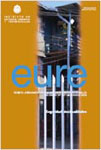Ciudad y seguridad ciudadana en Chile: revisión del rol de la segregación sobre la exposición al delito en grandes urbes
DOI:
https://doi.org/10.4067/S0250-71612006000300003Palabras clave:
segregación, seguridad ciudadana, violenciaResumen
Los análisis sobre la ciudad insegura han postulado teorías explicativas centradas en cierto tipo de determinantes (desempleo y pobreza; marginalidad juvenil; desarticulación comunitaria; diseño espacial; y déficit de espacio público), y han destacado que las políticas públicas preventivas más importantes se refieren al crecimiento económico y empleo, al desarrollo comunitario, y las intervenciones locales y recuperación de espacios degradados. Este artículo destaca la importancia del problema de la segregación residencial de los sectores de menores recursos como un mecanismo importante de la exposición al delito en las ciudades y que debe formar parte central de una agenda de recuperación físico-social de los barrios excluidos. Para esto se analiza, por una parte, la asociación entre un índice de segregación residencial socio-económica de nuestras ciudades principales, a partir de datos del censo 2002 de escala de distritos, con los niveles de denuncia de delitos de mayor connotación social a escala de ciudades. En segundo término, en base a datos del observatorio de satisfacción residencial del ministerio de vivienda y urbanismo, estudiamos la percepción de inseguridad al peligro en el espacio público de grupos contrastantes en cuanto a edad, específicamente, jóvenes y adultos mayores.Descargas
Publicado
Cómo citar
Número
Sección
Licencia
Derechos de autor 2006 Revista EURE - Revista de Estudios Urbano Regionales

Esta obra está bajo una licencia internacional Creative Commons Atribución 4.0.
Al momento de aceptar la publicación de sus artículos, los autores deberán formalizar la cesión de derechos de autor a EURE, según las condiciones establecidas por la Revista.
Ésta establece que el autor autoriza a EURE de manera gratuita, exclusiva e ilimitada a reproducir, editar, publicar, distribuir, publicitar, comercializar y traducir el artículo, a cualquier soporte conocido o por conocer y desarrollar.
Del mismo modo, los autores aseguran que el artículo propuesto es original, no publicado y no propuesto para tal fin a otro medio de difusión.


